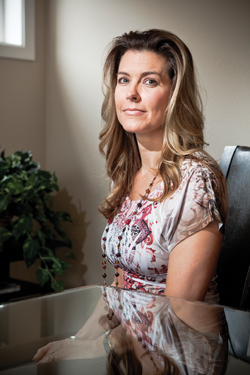
Michelle Cummings is on track to be one of Washington’s first LLLTs.
In March, Washington state’s first class of limited license legal technicians will sit for a licensing exam. Those who pass will be licensed by the state to provide legal advice and assistance to clients in domestic relations without the supervision of a lawyer. Over time, Washington plans to license LLLTs in other practice areas as well.
And Washington is not alone. In New York, nonlawyer “navigators” assist unrepresented litigants in housing and consumer debt cases. In California, the state is consider adopting a program similar to Washington’s, and several other states are studying the issue. Even the ABA’s newly appointed Commission on the Future of Legal Services is expected to consider non-lawyer practice.
All of these initiatives are in response to what many perceive as a crisis in meeting the legal needs of low and moderate income individuals across the United States. Advocates say it is a crisis that lawyers alone — no matter how much pro bono they do — could ever resolve.
If this interests you, check out my report in the latest issue of the ABA Journal that explores this phenomenon in depth: Washington state moves around UPL, using legal technicians to help close the justice gap.
 Robert Ambrogi Blog
Robert Ambrogi Blog